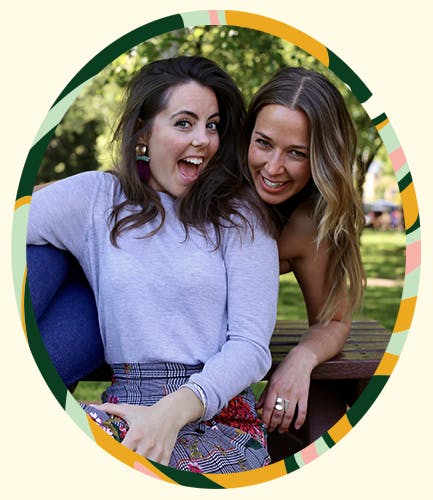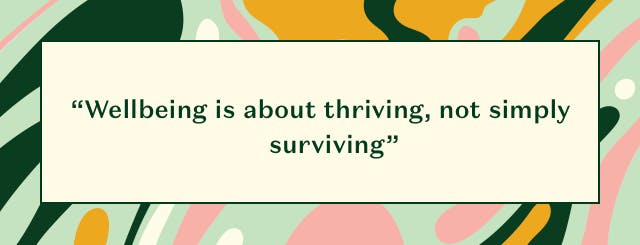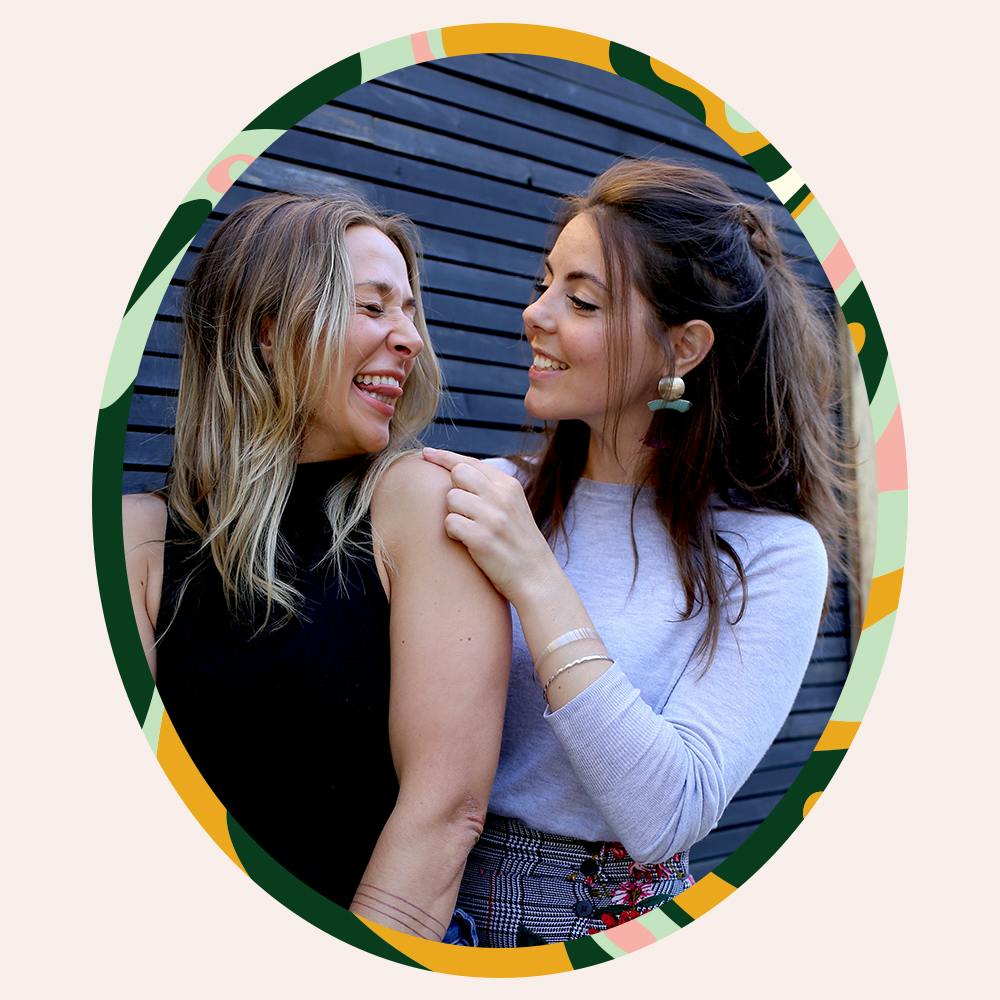“Do women care that much about sex?” It’s a question that Dr. Anna Hushlak and Billie Quinlan have been asked many times while building a business around women’s pleasure.
The answer is a resounding yes—despite hundreds of years trying to convince us otherwise. But learning what women want, when they want it and how to communicate it, is crucial to the experience. Enter, Ferly.
Just as Calm and Headspace had got us comfortable with using technology to support mental wellbeing, Dr. Hushlak and Quinlan throw sexual wellbeing into the mix. They’ve created an app which promises to help women become more mindful about sex, and through a series of audio guides—which combine key learnings, practices and erotic stories—Ferly helps you understand your body, identify points of pleasure, and debunk the myths and gaps in today’s education which affect women’s understanding of pleasure.
Ever heard friends lamenting their inability to have an “internal orgasm”? The app tells us that the idea of a “vaginal orgasm” vs a “clitoral orgasm” was invented by Sigmund Freud in 1905 in attempt to make the clitoris inferior. “According to feminist researchers,” says the app, “the myth of the vaginal orgasm is one of the most effective examples of society’s stifling female sexuality and enforcing sex as reproduction rather than pleasure.” In fact, for the majority of women, clitoral stimulation is a must.

But Ferly isn’t just about reaching orgasm, it’s about all the moments in between, too. Body-mapping takes you through an erotic visualisation to figure out which parts of your body turn you on, while a touch-for-touch practice for couples aims to reconnect. Their sensual stories are simply there to help you get in the mood while their journal looks at sexual wellbeing from a wider cultural lens (why was everyone so shocked when Arya Stark had sex?).
We predict this app will be shared across hundreds of WhatsApp groups worldwide (we’ve sent it to a few in the course of writing this article). But first, here’s the lowdown on sexual wellbeing and mindful practice from Ferly’s founders…
Can you explain the notion of sexual wellbeing?
Wellbeing is about thriving, not simply surviving. It’s not about limiting ourselves to the absence of disease or dysfunction but instead, it’s a focus on being healthy, happy and comfortable. Sexual wellbeing is about holding space for our sexualities to flourish: physically, mentally, emotionally and socially. It includes developing an intimate understanding of our bodies, being accepting of our thoughts and feelings, and feeling comfortable and confident in our relationships whether that’s a one night stand or a long-term partner. Sexual wellbeing is about being authentically and unapologetically you.
What led you to build a business around it?
We were frustrated by the taboo, over-medicalisation and objectification of female sexuality, so we created Ferly. Our app is a space for womxn to invest in their sexual wellbeing and define what thriving means to them. From fitness to healthy eating, we have a million and 1 ways to look after our physical wellbeing. With the popularisation of apps like Calm and Headspace we now have the tools to support our mental wellbeing but sexuality is an integral part of being human. More than that, sex is one of our most basic needs. It’s about time we invested in it.

What has been the reaction to creating a business around sexual wellbeing?
Sexual wellbeing is a new concept, one that can be difficult for some people to get. On top of that, womxn aren’t use to prioritising their pleasure and historically, they haven’t been encouraged to express their needs. Our sex education teaches us about disease and pregnancy prevention whilst ‘sexual health’ focuses predominately on our medical needs. Plus the media has eroticised and romanticised an ideal yet unattainable narrative of female sexuality. Pleasure has systematically been left out of the conversation. Unfortunately, when it comes to sex, our current world is one where womxn accept ‘good enough’ as ‘enough’.
What have been some of the challenges of setting up Ferly?
Introducing Ferly has felt radical. We’ve had people question us on whether this type of business is actually necessary. Do womxn really care that much about sex? Many womxn have told us that prioritising activities in pursuit of sexual wellbeing feels indulgent and shameful. When we’re told ‘no’ or ‘this business won’t succeed,’ it is our absolute belief that every womxn has the right to be sexually well that drives us. No one challenges you if you go to the gym, eat well or take 10 minutes to meditate. A womxn who makes time in their week to connect with their body, explore how they think and discover what sex means to them, is taking critical strides towards owning their overall health, happiness, and pleasure. It’s this belief that pushes us to dig deep, to get back up, to be resilient.
Could you explain to us the idea behind mindful sex?
To be ‘mindful’ means to be conscious or aware, to exist moment by moment and to do so without judgement. When it comes to sex, we’re bombarded with information telling us not only what ‘sex’ is but also how we should be having it. We generally only see sex done in one way, which tends to be heterosexual, penetrative and resulting in orgasm! Ferly is a space for womxn to block out this noise, to learn the real science behind sex and to follow guided practices that they can take offline into their everyday. Mindful sex is about empowering womxn to understand not just how they have sex, but how they feel about it.
Why did you think audio lessons were the best way for people to learn about sexual wellbeing?
When it comes to sex, so much of our education is passive. We sit in class and listen as our teacher points at a plastic uterus. We watch porn and we see another person doing something to someone and generally that someone looks or acts nothing like us. We read tips about the mythical g-spot in Cosmo or how to have ‘mind-blowing sex’ in pop culture Karma Sutra books, but we don’t know where this information comes from and more than that, how to apply this information on our own.
Audio is a powerful medium, which enables us guide womxn through their own personal practices, whilst allowing them to drive. Audio also allows our teaching to be contextual. Womxn are able to learn-by-doing and to experience their education in the here and now and to do so, without constantly comparing themselves to others.
“
Pleasure has systematically been left out of the conversation.
How is pleasure linked to female health?
Quinlan: Both past and present, our world is laden with shame around sex. This is especially so for womxn. It has a profound impact on our physical and mental health. We see this manifesting in so many ways. That might be around consent and sexual compliance, it might be around a lack of enjoyment and pain during sex, it might be around anxiety and intimacy. When womxn are unable to express their needs—if they even feel deserving of them—they are more at risk of finding themselves in negative sexual experiences. This shame prevents womxn from owning their sexuality.
Dr. Hushlak: Pleasure is the absence of shame and we experience it when we feel healthy, happy and confident. It’s pleasure that gives us autonomy over our bodies and empowers us to make positive decisions – on our terms – that affect our health.
What are some of the key ways your menstrual cycle can affect sexual experiences?
Quinlan: Lubrication! Period sex is the most naturally lubricated sex of all. This could be a great time for shower sex when you don’t need any extra lube. Also your boobs. You may discover increased sensitivity to the breast and nipple, understanding when this occurs could inform whether you’d like to weave a little more nipple play into sex at certain times of the month. Finally desire, in the days leading up to ovulation and the days just after, some women report an increase in masturbation, erotica consumption and sexual fantasies.
Dr. Hushlak: Ditto on the period sex. I love having sex on my period—everything just feels more sensitive and more intense. I’ve definitely noticed that just before I get my period—generally alongside my PMS—my libido fluctuates. I tend to feel sad and more tired just before I come on. My craving for intimacy and touch definitely goes up but my interest in actually ‘having sex’ goes down. It’s sort of like I just can’t really be bothered! I’m also much more of an initiator around ovulation. I feel my most sexually confident and I’ve noticed that I tend to be more dominant during that time as well. Go down on me and get me on top!
There are so many definitions of a healthy woman? What does a “healthy woman” look like to you?
Quinlan: When it comes to sexuality, I believe a healthy womxn is someone who is able to live their most authentic self. That means letting go of shame and fear, and not apologising for who they are and what they need. There’s a lightness that comes from being that free.
Dr. Hushlak: To me, a healthy womxn is someone who thinks about ‘the connections between’ and who anticipates rather than reacts. Being healthy means knowing my whole self, what I’m like at my best and what I’m like at my worst, and being able to recognise where I’m at on that spectrum. Healthy is having the knowledge as well as the tools to make me resilient. It’s the power to not only be able to take myself from bad to good and good to great, but also to be able to stay there.
“
Pleasure is the absence of shame and we experience it when we feel healthy, happy and confident.
When did you start to take an active role in finding out about your cycle?
Quinlan: I started using [a period tracking app] about 12 months ago and it was the first time I really paid attention to my body’s rhythm. This heightened awareness also showed me how my body responded to sex and pleasure differently and I began to use this knowledge to my advantage. Having sex when I knew it would feel really good for me and being kind to myself when I knew it wasn’t the right time, rather than trying to force it. This gave me a sense of freedom!
Dr. Hushlak: Not until recently actually. Whilst I new the ‘basics’—oh, that’s my period—I’d never realised how much my cycle influences all aspects of my life. PMS is real. So many of us have grown up with this idea of PMS as this period where womxn suddenly become confrontational and aggressive, like a boxer waiting to throw a punch. For me, this has not been the case. I go the existential, ‘who am I’ and ‘why am I here’ route. Understanding my cycle has allowed me to separate the internal fluctuations in my body from the external fluctuations from the world around me. It gives me context and helps me treat myself with an extra bit of love.
What’s your relationship like with your period?
Quinlan: Oh my! We have a very tense relationship. I get THE worst cramps, I pass out, throw up, get a fever and turn into a grumpy bitch! I nearly called the ambulance during my last period but I couldn’t leave the toilet long enough to grab my phone. I would do bad things if it meant I didn’t have the first day of my period again! When I heard about Daye, it felt like my birthday!
Dr. Hushlak: I’ve been on the coil for the last 6 years and since then, my period and I have had a pretty chill relationship to be honest. It’s super light, lasts about 3-4 days and rarely gets in my way. That being said, since my mid-20s I’ve started to get cramps and damn, they’re a thing. When they hit, they hit. I’m so over popping pills, dragging around hot water bottles, and lying on the floor crying waiting for them to pass. Praise Daye.





